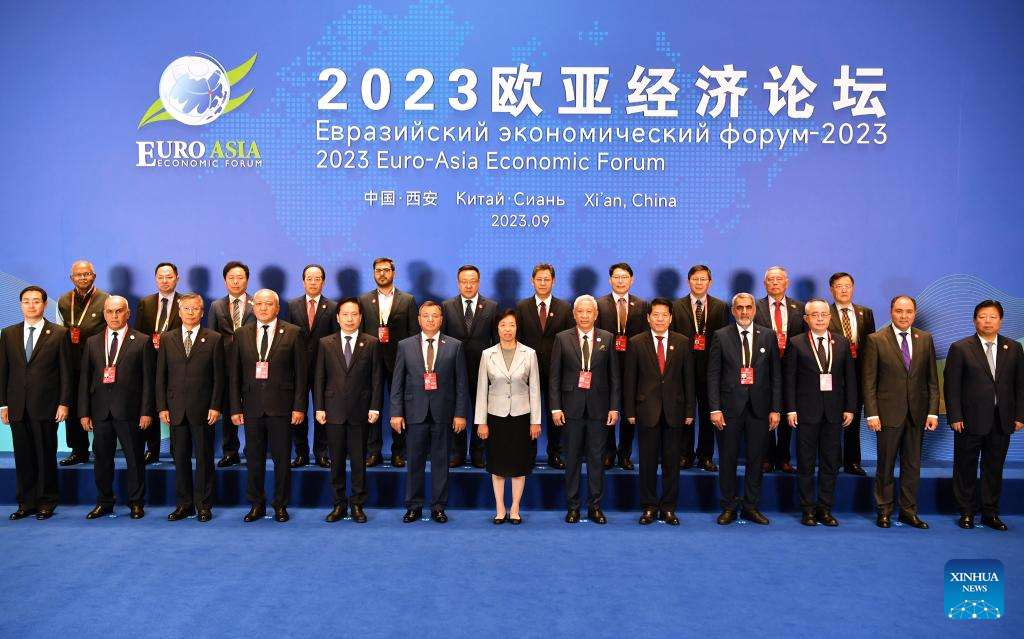
Guests pose for group photos at the opening ceremony of the 2023 Euro-Asia Economic Forum in Xi'an, northwest China's Shaanxi Province, Sept. 22, 2023. Su Hui, vice chairperson of the National Committee of the Chinese People's Political Consultative Conference, attended the opening ceremony and delivered a speech at the forum. (Xinhua/Shao Rui)
XI'AN, Sept. 22 (Xinhua) -- The 2023 Euro-Asia Economic Forum, with the theme of creating opportunities for cooperation and pursuing future development, opened on Friday in Xi'an, the capital of northwest China's Shaanxi Province.
Politicians, businesspeople and scholars from 51 countries and regions are attending the three-day forum.
This year's edition features 13 parallel sessions on topics including policy coordination, financial cooperation, economic and trade exchanges, technological innovation, ecological conservation, and cultural and tourism development.
An economic and trade expo also opened on the sidelines of the forum. It consists of five areas, including an international import exhibition area and a theme area featuring five Central Asian countries.
The Euro-Asia Economic Forum, an important economic cooperation mechanism under the framework of the Shanghai Cooperation Organization (SCO), has been held every two years since its inception in 2005.
Su Hui, vice chairperson of the National Committee of the Chinese People's Political Consultative Conference, said at the opening ceremony that the forum is of significance to deepening Belt and Road cooperation and implementing the consensus achieved at the China-Central Asia Summit.
China will remain committed to its fundamental national policy of opening up to the outside world, adhere firmly to economic globalization, continue providing new opportunities for the world through its development, and promote the construction of an open world economy, Su said.
SCO Deputy Secretary-General Nuran Niyazaliev said that in the complicated international environment, the global economic framework for governments should be optimized and reformed, and an open, transparent, inclusive and non-discriminatory multilateral trading system is needed.
The forum will continue making important contributions to strengthening interregional dialogue, unlocking the potential of regional cooperation and expanding interregional cooperation, Niyazaliev said. By doing so, it will promote sustainable economic development and improve the well-being and living standards of people in the Eurasia region, including those in the SCO countries, he added. ■



